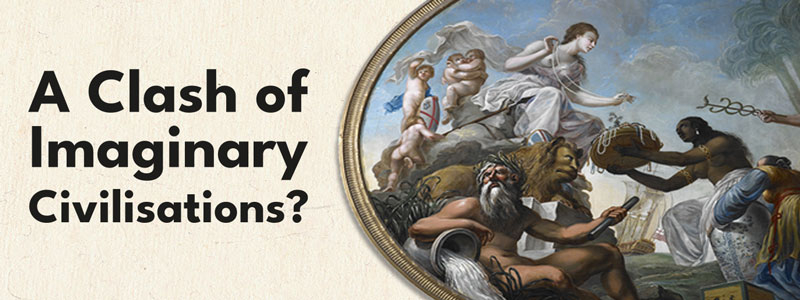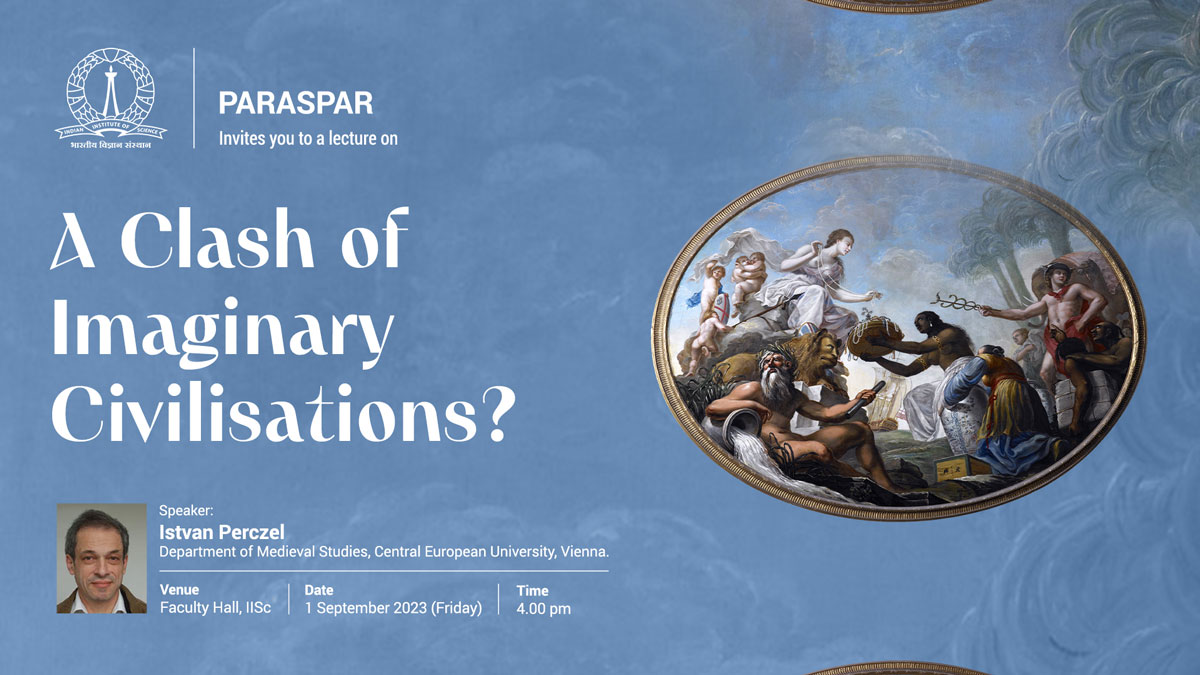A Clash of Imaginary Civilisations?

Division of Physical and Mathematical Sciences, Indian Institute of Science and Technology, Bangalore
Many believe that we are living in the age of the “Clash of Civilisations” (the title of an influential book by Samuel Huntington) and that this theory explains the present conflicts and wars, in which political entities, mostly determined by their religious background, are fighting for supremacy or survival. However, for such a conflict to happen, the putative civilisations that are going to clash should exist. If they do not exist, then the cause of the present conflicts is not the inherent difference and opposition of these “civilisations,” but the civilisationist theory itself, which tries to explain complicated historical and cultural phenomena through an overly simple interpretative tool.
The lecture will present the birth and development of the civilisationist theories (from Hegel, through Kipling, Weber, Toynbee, Jaspers, Eisenstadt, and finally Huntington), and will show that they are a typical colonial concept invented to justify the violent conquest and subjugation by the European powers of the rest of the world.
Speaker: Istvan Perczel (Department of Medieval Studies Central European University, Vienna)
 István Perczel is Professor in the Department of Medieval Studies at Central European University, Vienna. He has extensively worked on Late Antique and Patristic philosophy. One of his research projects is on Christian Platonism and Byzantine theology. Also, he has worked on Syriac Christianity, including the Syriac Christians of India. In the year 2000, he initiated the digitization and cataloguing of the manuscript collections of the Saint Thomas Christians of Kerala. The project has resulted in the collection of digital images about over 1,500 paper manuscripts written in Syriac and Garshuni Malayalam and 60,000 palm-leaf manuscripts as well as the documentation of architectural monuments, artworks, and inscriptions. The material is archived at Hill Museum and Manuscript Library.
István Perczel is Professor in the Department of Medieval Studies at Central European University, Vienna. He has extensively worked on Late Antique and Patristic philosophy. One of his research projects is on Christian Platonism and Byzantine theology. Also, he has worked on Syriac Christianity, including the Syriac Christians of India. In the year 2000, he initiated the digitization and cataloguing of the manuscript collections of the Saint Thomas Christians of Kerala. The project has resulted in the collection of digital images about over 1,500 paper manuscripts written in Syriac and Garshuni Malayalam and 60,000 palm-leaf manuscripts as well as the documentation of architectural monuments, artworks, and inscriptions. The material is archived at Hill Museum and Manuscript Library.
Perczel’s publications on Indian subjects include The Nomocanon of Metropolitan Abdisho of Nisibis: A Facsimile Edition of MS 64 from the Collection of the Church of the East in Thrissur (2009) introduced by Hubert Kaufhold; a co-edited volume, Christianity in Asia: Sacred Art and Visual Splendour (2016); and a series of studies on Indian Christianity and the Indian manuscript collections, including “Classical Syriac as a Modern lingua franca in South India between 1600 and 2006” (2009); “Garshuni Malayalam: A Witness to an Early Stage of Indian Christian Literature”(2014); “Accommodationist Strategies on the Malabar Coast: Competition or Complementarity?” (2018); “Syriac Christianity in India” (2019) and “Notes on Syriac Learning in South India in the Middle Ages and Early Modernity” (forthcoming). The material digitized in India is being published online by Hill Museum and Manuscript Library (1106 Syriac and Garshuni Malayalam MSS published to date) and the catalogues are forthcoming. With Anshuman Pandey and the programming team of George Kiraz, he participated in the elaboration of Unicode fonts for the Garshuni Malayalam script, permitting, the first time in history, to print Garshuni Malayalam texts.

A Clash of Imaginary Civilisations?
Many people think that we are living in the age of a Clash of Civilisations (the title of an influential book by Samuel Huntington) and that this theory explains the present manifold conflicts and wars, in which political entities, mostly determined by their religious background, are fighting for supremacy or survival. However, for such a conflict to happen, the putative civilisations that are going to clash should exist. If they do not exist, then the cause of the present conflicts is not the inherent difference and opposition of these “civilisations,” but the civilisationist theory itself, which tries to explain complicated historical and cultural phenomena through an overly simple interpretative tool.
The lecture will present the birth and development of the civilisationist theories (from Hegel, through Kipling, Weber, Toynbee, Jaspers, Eisenstadt, and finally Huntington), and will show that they are a typical colonial concept invented to give a justification to the violent conquest and subjugation by the European powers of the rest of the world. It will also show the inadequacy of this conceptual network, and its extreme harm causing the present situation - a clash of imaginary civilisations that have never existed. American decision makers since Clinton through Bush sr and jr have acted along these lines, but neither Islamicism, nor Hindutva, nor the Russian World ideologies are any exception. The lecture will also invoke alternative theories, such as that of cosmopolises, proposed by Toulmin, Pollock, and Ricci, as well as the competing idea of world systems (Wallerstein, Gunder Frank etc.), suggesting that if we understand the historical inexistence of "civilisations" and the unity of 5000 years of a world system, which we call the Oikoumene, or Vasudhā: the Inhabited World, we could slowly escape the trap that the civilisationist theories, a product of colonial ideology, have set up for us. This is certainly an utopistic idea, but we believe in the social vocation of scholarship, hence the whole endeavour.
Source: Paraspar talk by Prof. Istvan Perczel @ 4pm at Faculty Hall
Pécsi Tudományegyetem | Kancellária | Informatikai és Innovációs Igazgatóság | Portál csoport - 2020.


